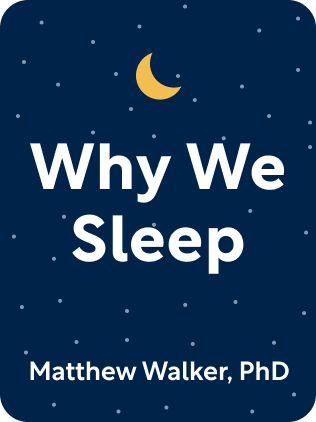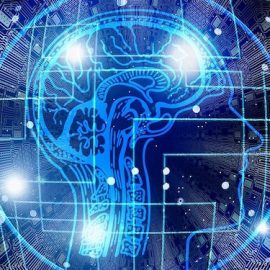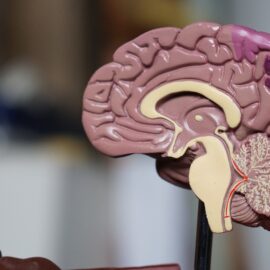

This article is an excerpt from the Shortform summary of "Why We Sleep" by Matthew Walker. Shortform has the world's best summaries of books you should be reading.
Like this article? Sign up for a free trial here .
What are the major lack-of-sleep problems? Are these problems serious?
Lack-of-sleep problems include everything from loss of attention to heart disease. Sleep is an incredibly important function, and lack-of-sleep problems can be serious.
Lack-of-Sleep Problems and Why They Matter
While getting great sleep is good for the brain, sleep deprivation is unambiguously harmful for the brain and can lead to lack-of-sleep problems. We’ll show damage in three ways: to attention, to emotion control, and for Alzheimer’s Disease.
Lack of Sleep Worsens Attention and Concentration
Sleep deficits are very bad for attention and concentration. This is especially harmful during high-risk activities, like driving. There are many immediate lack-of-sleep problems that can harm you or others.
Here are some ways to put the risk into perspective:
- Driving after having slept less than 4 hours increases crash risk by 11.5x.
- Being awake for 19 hours (being past your bedtime by 3 hours) is as cognitively impairing as being legally drunk.
- Adding alcohol to sleep deficits has a multiplicative effect on mistakes, not just an additive one.
Sleep deficits add up over time, and performance progressively worsens with greater sleep deficit. Having 10 nights of 6-hour sleep is equal in damage to one all-nighter, as is 6 nights of 4-hour sleep.
Why does sleep cause more accidents? Part of it is delayed reaction time. Another part is a “microsleep,” where your eyelids shut for just a few seconds and you go unconscious and lose motor control. If you’re in a car going 60 mph, falling asleep for just a few seconds could result in a terrible accident.
Sleep deprivation is an insidious problem because when you’re sleep-deprived, you don’t know how poorly you’re performing. (This is like being drunk and thinking you’re far more capable of doing things than you actually are). And if you’re chronically sleep-deprived, your low performance becomes a new normal baseline, so it’s hard for you to see just how badly you’re performing.
Think you can do just fine on 6 hours of sleep? Chances are, you can’t. Less than 1% of the population is able to get six hours of sleep and show no impairment (this is largely genetic and relates to the BHLHE41 gene). Everyone else is just fooling themselves and propping up their energy with caffeine.
And think you can get by with power naps? They only get you partway there – power naps are most effective at the onset of fatigue, not when you’re already sleep-deprived. Consider this before you encounter problems caused by lack of sleep.
Lack of Sleep Worsens Emotional Control
A baby that doesn’t get its nap time tends to get cranky. Adults are the same way. Problems caused by lack of sleep are everywhere.
The amygdala is the part of your brain responsible for emotions like fear and anxiety. Normally, it’s held in check by your prefrontal cortex (the rational part of your brain). But when you’re sleep-deprived, this suppression is weakened, and your amygdala can run amok, leading to 60% more emotional reactivity. The highs can be higher, and the lows lower.
On the other side of fear and anxiety, positive rewards and dopamine may be amplified by sleep deprivation too. Therefore, sleep deprivation can intensify sensation-seeking, risk-taking, and addiction.
More gravely, lack-of-sleep problems may play an important role in mental illness. Here’s suggestive evidence:
- Sleep disruption is a common symptom of all mood disorders. The causation is unclear: does bad sleep cause mood disorders, or do mood disorders cause bad sleep, or both? But the author believes sleep plays at least some aggravating role.
- One night of sleep deprivation can trigger a manic or depressive episode in bipolar patients.
- Sleep deprivation is associated with suicidal ideation in teenagers.
- Surprisingly, sleep deprivation makes ⅓ of depression patients feel better, possibly by amplifying their positive emotions. However, it makes ⅔ feel worse, so it isn’t prescribed as a treatment. (Though it would be interesting to preclassify the groups)
Sleep Deprivation May Contribute to Alzheimer’s
While no definitive causal link has been shown yet, sleep losses may be another lack-of-sleep problem. It could contribute to Alzheimer’s through a few mechanisms:
- Frontal lobe degeneration (especially through Alzheimer’s characteristic amyloid plaques) disrupts NREM sleep.
- Lack of NREM sleep disrupts memory formation, a key symptom of Alzheimer’s.
- (Notably, the hippocampus is not affected by amyloid plaques, presenting a conundrum to scientists on why memory is disrupted in Alzheimer’s.)
- Lack of NREM sleep disrupts the lymphathic cleanup system, during which glia shrink to less than half their normal size and amyloid plaques are cleared out more readily.
It’s easy to see how a vicious cycle can occur – frontal lobe degeneration disrupts NREM sleep, which causes further frontal lobe degeneration.
Sleep loss precedes Alzheimer’s by several years, suggesting this could be an early diagnostic.
Encouraging NREM sleep, through artificial brain stimulation if needed, might be therapeutic for Alzheimer’s, and counteract problems caused by lack of sleep.
Lack-of-sleep problems may affect you in your life if you don’t get enough sleep. Make sure you consult with a doctor if you believe you have lack-of-sleep problems.

———End of Preview———
Like what you just read? Read the rest of the world's best summary of Matthew Walker's "Why We Sleep" at Shortform .
Here's what you'll find in our full Why We Sleep summary :
- Why you need way more sleep than you're currently getting
- How your brain rejuvenates itself during sleep, and why nothing can substitute for sleep
- The 11-item checklist to get more restful sleep today







Getting your sleep can help may things.
I remember in college trying to do the “all-nighter “thing a couple times, it never worked out well! Going to bed and getting good rest is always better!
arc4life.com